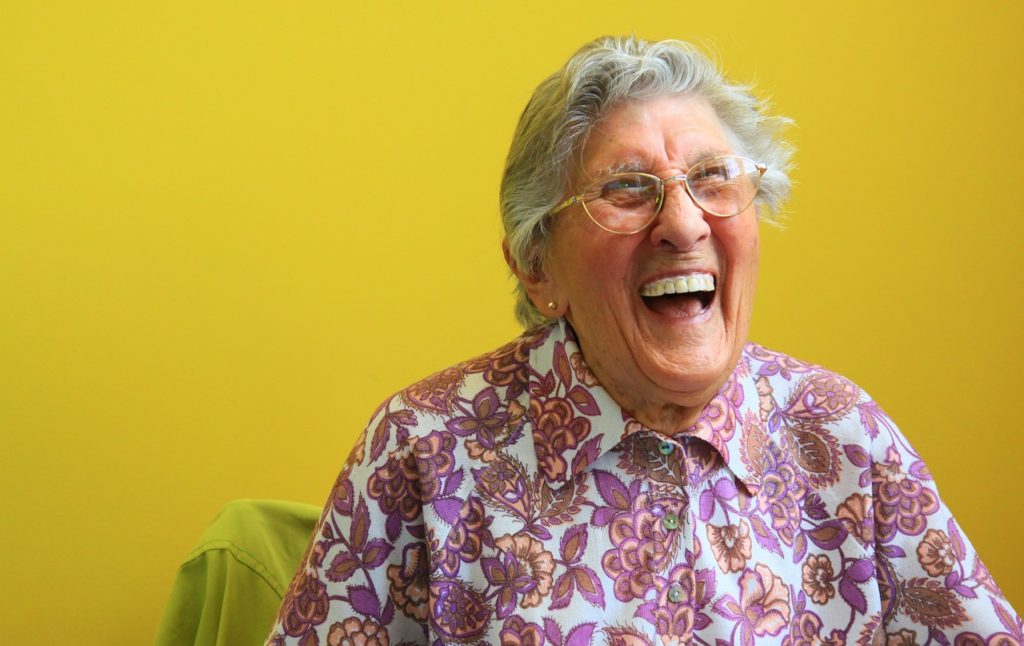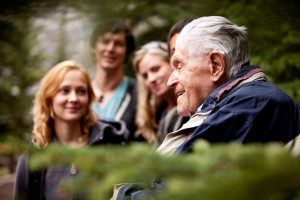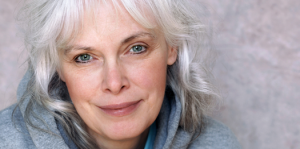- Calls to this hotline are currently being directed to Within Health, Fay or Eating Disorder Solutions
- Representatives are standing by 24/7 to help answer your questions
- All calls are confidential and HIPAA compliant
- There is no obligation or cost to call
- Eating Disorder Hope does not receive any commissions or fees dependent upon which provider you select
- Additional treatment providers are located on our directory or samhsa.gov
Nutritional Rehabilitation in the Elderly Eating Disorder Patient

Eating disorders are commonly mistaken as something that only affects young adolescent females, and these stereotypes are partially created by the lack of education about these psychiatric illnesses. The reality is that eating disorders impact a wide range of people, irrespective of their age or gender.
A number of elderly people may actually struggle with an eating disorder, and this often goes overlooked because this may not be expected of this population. Many elderly people have several risk factors that may make them susceptible to developing an eating disorder, and understanding signs and symptoms can help a person connect to treatment earlier.
Be Aware of Signs / Symptoms of Eating Disorders
Some of the most common signs and symptoms of eating disorder development may be mistaken as failing health or general aging, so it is important to be aware of potential signs that may indicate an elderly person in in fact struggling with an eating disorder.
Elderly individuals who develop an eating disorder in their later years may have had a preexisting disorder that was not properly addressed or treated, a relapse event of a prior eating disorder, or a new occurrence of an eating disorder.
Elderly individuals who may have an eating disorder will benefit from comprehensive care, particularly if other medical problems or psychiatric illnesses are also present. Other health issues, medication management, poly-substance abuse and more can complicate eating disorders.
Having a full evaluation by a qualified professional and eating disorder specialist will help determine the level of care and treatment that might be most appropriate for an elderly person dealing with an eating disorder.
Malnutrition
One of the most common side effects of an eating disorder is malnutrition, which can result in a host of complications and physical, mental and psychological issues for the suffer. Nutritional restoration, or at least bringing nutritional stores to a baseline level is an essential part of medical stabilization in eating disorder recovery. This may vary for an elderly patient based on the severity of an eating disorder.

For a person who is more symptomatic, seeking out care at an acute level may be necessary for stabilization. This might include inpatient treatment, in which an individual may receive IV fluids, electrolyte replacements and nutrition support in order to deliver much-needed nutrients to the body.
Other elderly individuals recovering from an eating disorder may benefit from nutritional rehabilitation in a less acute level of care, such as an outpatient setting in which regular meetings are conducted with a registered dietitian who specializes in eating disorder recovery.
A registered dietitian can be helpful in constructing a meal plan, offering accountability, support, education, as well as connecting a person with food resources to ensure they are getting adequate and regular nutrition. A dietitian can also work closely with a physician to help with the nutrition management of any other diseases that may be present, such as diabetes, cardiovascular complications, cancer and more.
Nutrition and Medical Rehabilitation
Nutrition rehabilitation is definitely an important part of recovery for an elderly person who is healing from an eating disorder but is merely one piece of the puzzle. Working with a comprehensive treatment team can ensure fully recovery, including physical, mental, emotional and psychological health. Nutrition rehabilitation is often a crucial aspect of medical stabilization, so if you or a loved one has been suffering with adverse side effects related to an eating disorder, it is important to get help from a qualified professional immediately.

When a person is able to get adequate nutrition in their body and restore depleted nutrition stores, cognition, awareness, and critical thinking skills also tend to improve. For this reason, nutrition and medical rehabilitation are often the first step of the recovery process, as a person cannot effectively begin therapeutic steps towards healing unless brain and body function is restored (at minimally, to a baseline level).
Regardless of your age, you can begin your journey towards recovery from an eating disorder by seeking out comprehensive care and help.
 Crystal is a Masters-level Registered Dietitian Nutritionist (RDN) with a specialty focus in eating disorders, maternal/child health and wellness, and intuitive eating. Combining clinical experience with a love of social media and writing, Crystal serves as the Special Projects Coordinator for Eating Disorder Hope/Addiction Hope, where her passion to help others find recovery and healing is integrated into each part of her work.
Crystal is a Masters-level Registered Dietitian Nutritionist (RDN) with a specialty focus in eating disorders, maternal/child health and wellness, and intuitive eating. Combining clinical experience with a love of social media and writing, Crystal serves as the Special Projects Coordinator for Eating Disorder Hope/Addiction Hope, where her passion to help others find recovery and healing is integrated into each part of her work.
As a Certified Intuitive Eating Counselor, Crystal has dedicated her career to helping others establish a healthy relationship with food and body through her work with EDH/AH and nutrition private practice.
The opinions and views of our guest contributors are shared to provide a broad perspective of eating disorders. These are not necessarily the views of Eating Disorder Hope, but an effort to offer discussion of various issues by different concerned individuals.
We at Eating Disorder Hope understand that eating disorders result from a combination of environmental and genetic factors. If you or a loved one are suffering from an eating disorder, please know that there is hope for you, and seek immediate professional help.
Reviewed By: Jacquelyn Ekern, MS, LPC on January 24, 2016
Published on EatingDisorderHope.com

The EatingDisorderHope.com editorial team comprises experienced writers, editors, and medical reviewers specializing in eating disorders, treatment, and mental and behavioral health.

